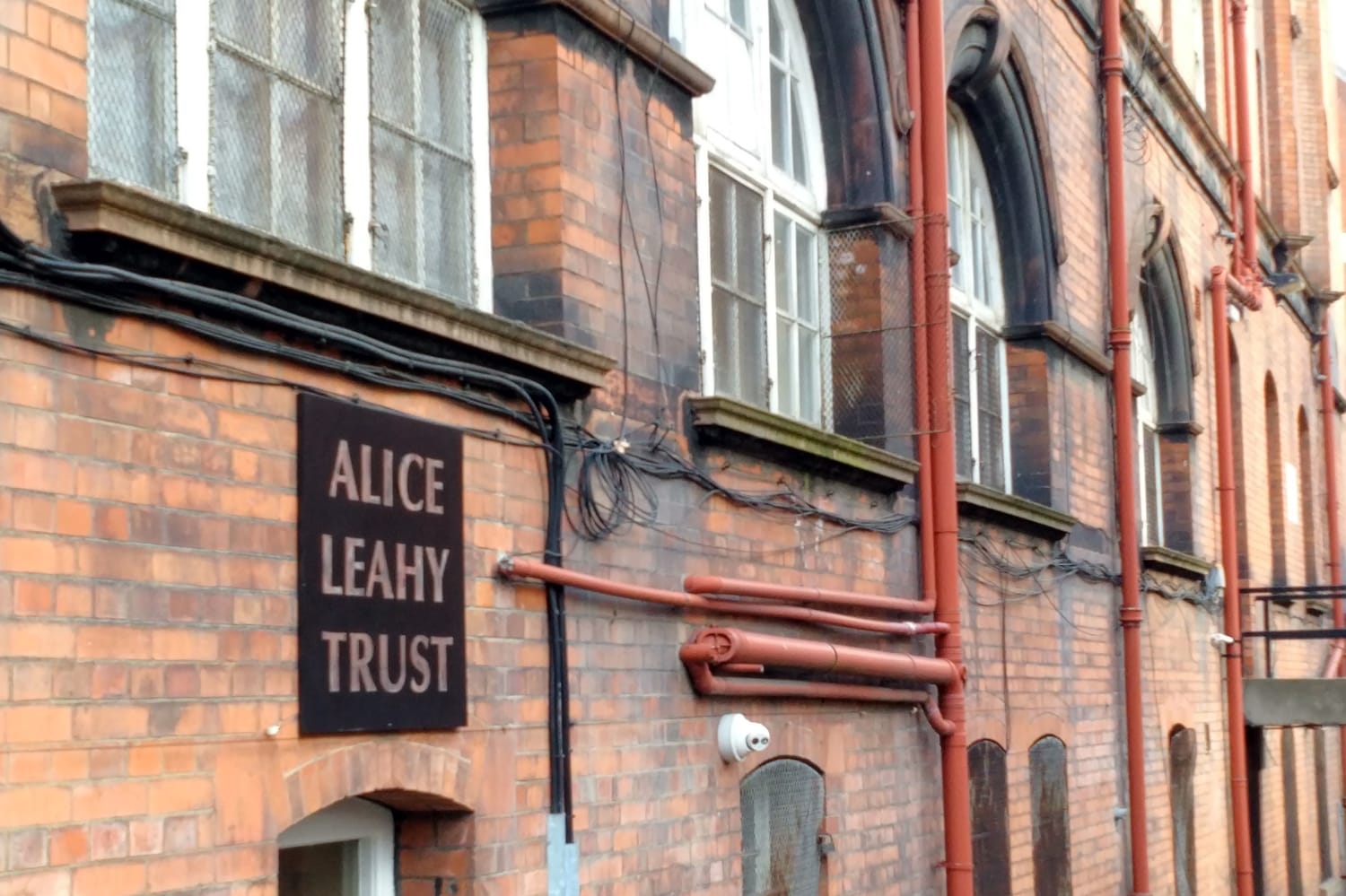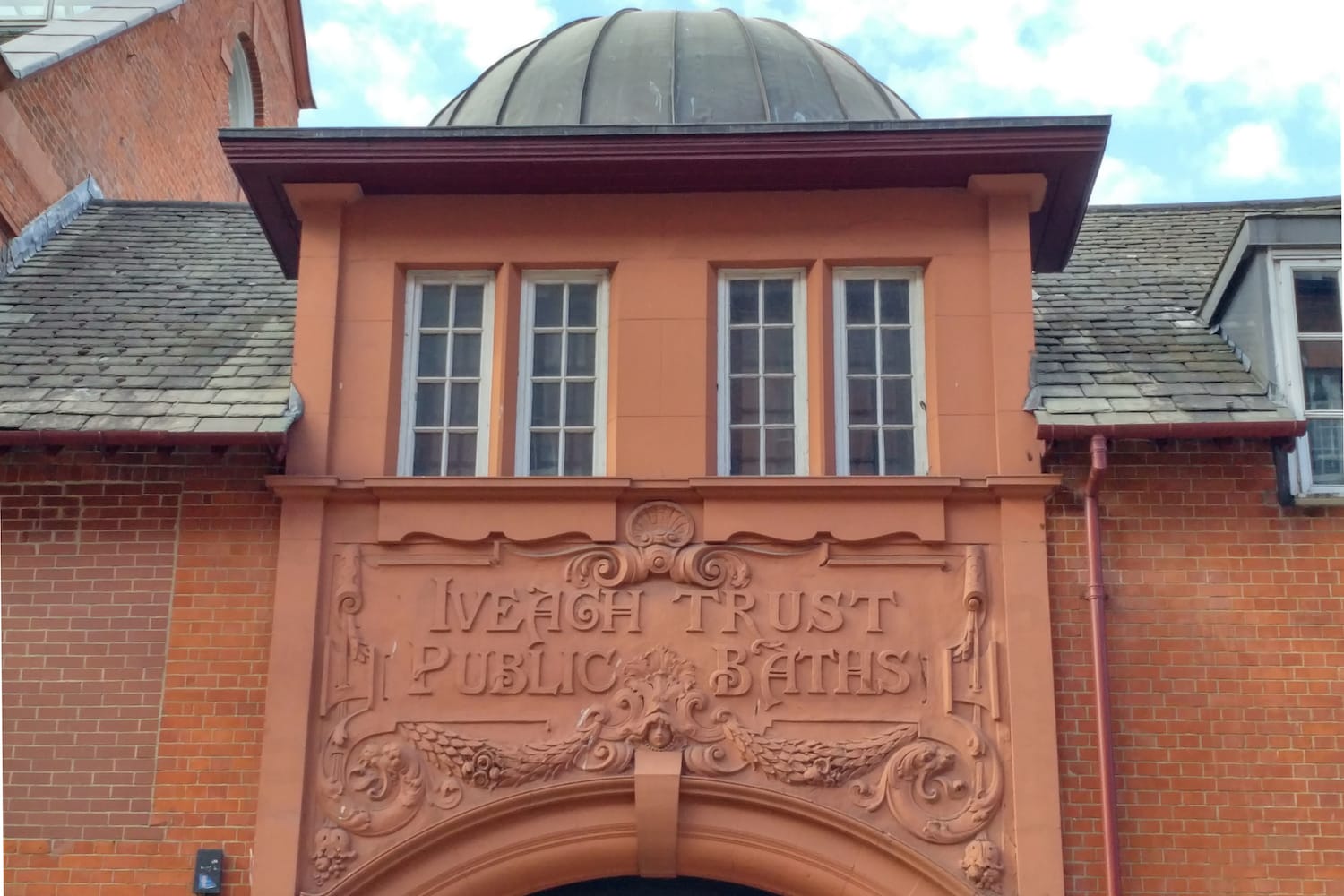What’s the best way to tell area residents about plans for a new asylum shelter nearby?
The government should tell communities directly about plans for new asylum shelters, some activists and politicians say.
“This isn’t just about homelessness,” says Alice Leahy. “This is much broader than that. It is as if we have become so informed that we are forgetting about the basics.”

By 10am on Monday, 13 people had dropped in to the Alice Leahy Trust for a hot shower, a change of clothes, and maybe even cup of tea.
When you’re homeless, especially if you’re sleeping rough, finding a place to shower can be tough. Unless you’re in the loop, says Mike FitzPatrick, who is minutes out of the shower.
Finding food isn’t hard, FitzPatrick says: “It’s almost impossible to go hungry.” But finding a toilet to use in the city centre, or a place for a wash is tricky.
The Alice Leahy Trust, in an red-brick Edwardian building on Bride Street, provides these facilities because Dublin City Council does not, says Alice Leahy.
But the council should provide showers, and public toilets – and not just for those who are homeless, says Leahy, a former nurse and midwife.
“This isn’t just about homelessness,” she says. “This is much broader than that. It is as if we have become so informed that we are forgetting about the basics.”
“Brother Luke’s has them,” says FitzPatrick, a young guy, with a cropped head of hair and goatee.
“Where else?” he says, turning around to his compatriots – four others in their 20s, also homeless – for intel on showers. They’re staying in a makeshift home made of pallets, and come here once a week for morning showers.
“Merchants Quay does them too,” says Darren Moore, who has been homeless for three years. Ever since his landlord doubled the rent in his Rathmines apartment, he says.
And then there’s the Alice Leahy Trust, although that wasn’t the plan.
“We were never meant to be a public-washing facility,” says Leahy. “We’re a health and social service.”

The Alice Leahy Trust was the first group in the city that had a public-health nurse and doctor, says Leahy, who in 1975 co-founded its predecessor, Trust.
They would do rounds of the city streets, checking on the health of those sleeping rough, she says.
But if you’re talking about health, you need to talk about hygiene, says Leahy. Then you need to talk about access to facilities where people can wash.
Leahy has repeatedly campaigned for Dublin City Council to provide public washing and sanitary facilities.
Back in 2006, the trust made a submission to then lord mayor of Dublin, Vincent Jackson, for the provision of public-showering facilities.
It detailed how the facilities might work, with access to showers provided for a fixed length of time at a fixed fee. Soap and towels would be provided. People who could not afford the service would be given vouchers.
For Leahy, providing public showers is about dignity.
“To avoid stigmatising people who are homeless or poor we believe public shower facilities should be made available to all,” wrote Leahy in a submission to Dublin City Council in 2006.
“If you’re confident enough to pop into a shop or a restaurant, you can go to the toilet there, but this is not a public convenience,” says Leahy.
“We would see people come into us who want to clean up for going to court, who want to go to an interview, who want to go and meet a family member, or to a funeral or just to feel good about themselves. And you can see the difference,” she says.
Down the hall, there’s a storeroom filled with clothes, sizes labelled on the shelves, toiletries and over-the-counter medicines – all donated.
There’s also three washrooms: one with a shower, one with a bathtub, and another with just sinks.
Three men are shaving in the washroom with the sinks. They have hairdressers and barbers coming in here too, says Jeanette O’Brien, a staff member at the trust.
Generally, people are only allowed one shower a week at Alice Leahy Trust, as, strictly speaking, they are a public-health and drop-in centre. Most mornings there are up to 20 people dropping in for a shower, O’Brien says.
It’s people who are sleeping rough and those who aren’t happy with facilities in their hostels, says Leahy.

Over at the Capuchin Day Centre, they have up to 20 to 25 people every morning using the showers, says Theresa Dolan, who works at the centre.
Demand has been increasing for the washing services at the centre, and they’ve applied for planning permission in order to accommodate more people, she says.
“We can only provide the washing facilities during the breakfast, as we don’t have enough volunteers later in the day,” says Dolan.
Speaking in a personal capacity, Dolan says she believes there’s a need for public washing facilities. Especially for children living in unsuitable accommodation.
“I don’t know who is looking after the children for wash facilities. It’s the very basics that they need going to school,” says Dolan.
Last week, Vincent Jackson – an independent councillor now, no longer lord mayor – asked Dublin City Council’s South Central Area manager if the council could encourage community groups and sports centres to open up their toilets and showers to the public, perhaps with financial incentives.
The Dublin Region Homeless Executive “funds a number of day services for homeless persons across the Dublin region. Merchant Quay Ireland and the Capuchin Day Centre have shower and toilet facilities which are accessible to all persons,” said a written response from Eileen Gleeson, the DRHE’s executive manager.
In Dublin City Council’s 2019 budget, €200,000 was set aside for the provision of two public toilets. According to a Dublin City Council spokesperson, the council is still deciding where to put these.
“The thing about public toilets and public wash facilities is where they would go,” says independent Councillor Mannix Flynn. “There is ample opportunity within the city as we have property in the city.”
“We’ve enough land to create a public washing facility where you can use a coin or a token or a card and you can go in and have a wash and a shower,” says Flynn, who supports the idea.
It’s not something that those who are homeless have raised with him, he says. But public facilities such as these should be standard, he says.
“Look at tourists. Most tourists have to be embarrassed into going into a pub or asking some shop owner to use the loo. It’s an abdication of responsibility,” Flynn says.
More people are sleeping in camper vans too these days, he says. Public wash facilities would help them.
What about anti-social behaviour? Flynn says the council needs to take more proactive measures to tackle anti-social behaviour across the board. Having such facilities, he says, could reduce other public order offences like public urination.
Darren Moore, who is homeless, says he’d like to see public toilets and public showers. But he can’t see that happening given drug use currently in the city.
(Others in the past have pointed to the need for safe supervised injection centres, which would make other public facilities safer, too.)
Flynn says toilets and showers would need to be staffed. Jackson agrees. “Dublin City Council is currently paying hundreds of thousands a year on portaloos,” he says.
In 2018, the council spent €32,000 on portable toilets, said a council spokesperson. It spent €52,000 in 2017, and €108,000 in 2016, they said. These were provided for “major events in the city”.
Jackson says he would prefer to see this money going toward staffing public toilets. “You could pay someone €35,000 a year to man public toilets, ensuring that people are safe,” says Jackson.
Get our latest headlines in one of them, and recommendations for things to do in Dublin in the other.